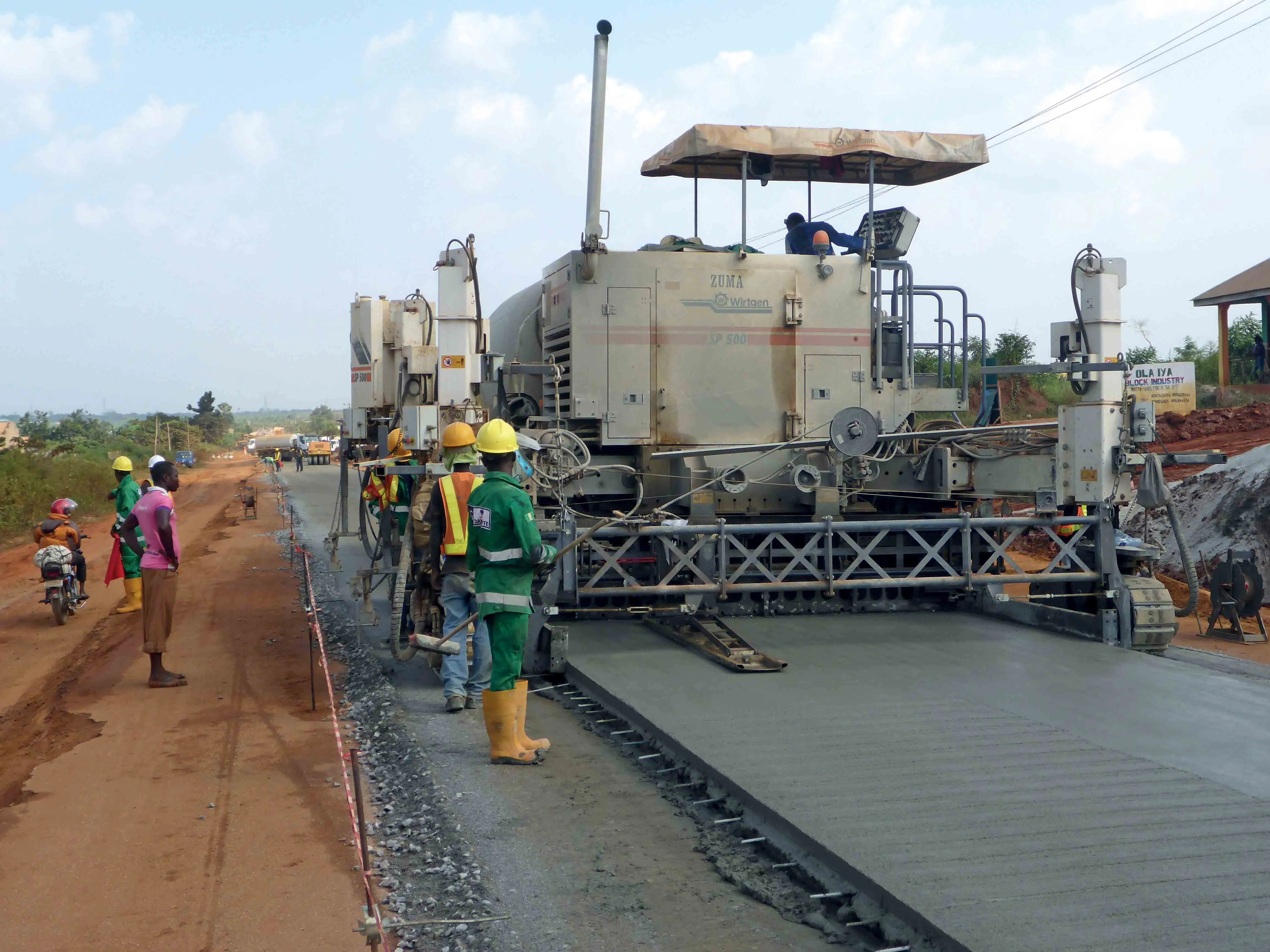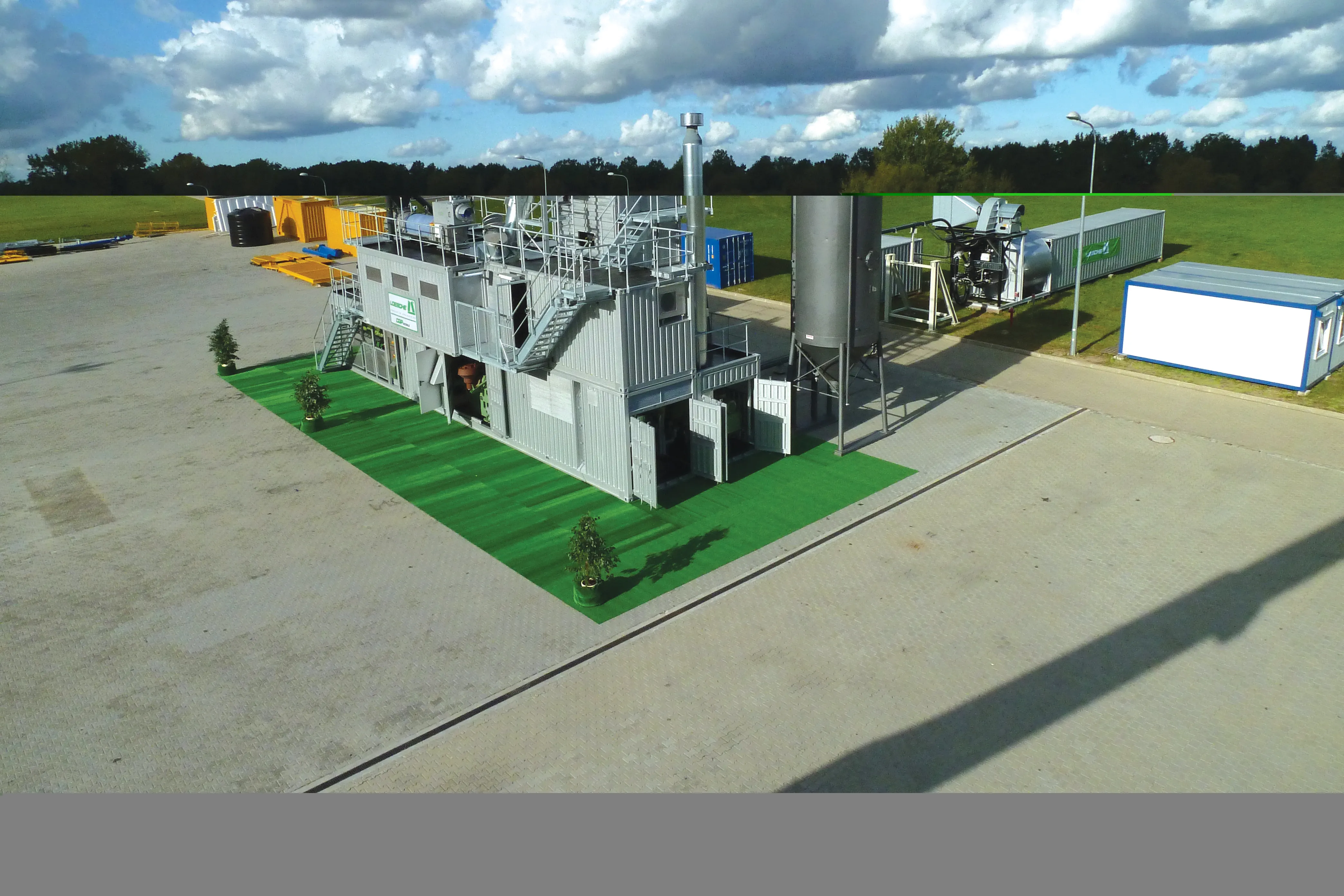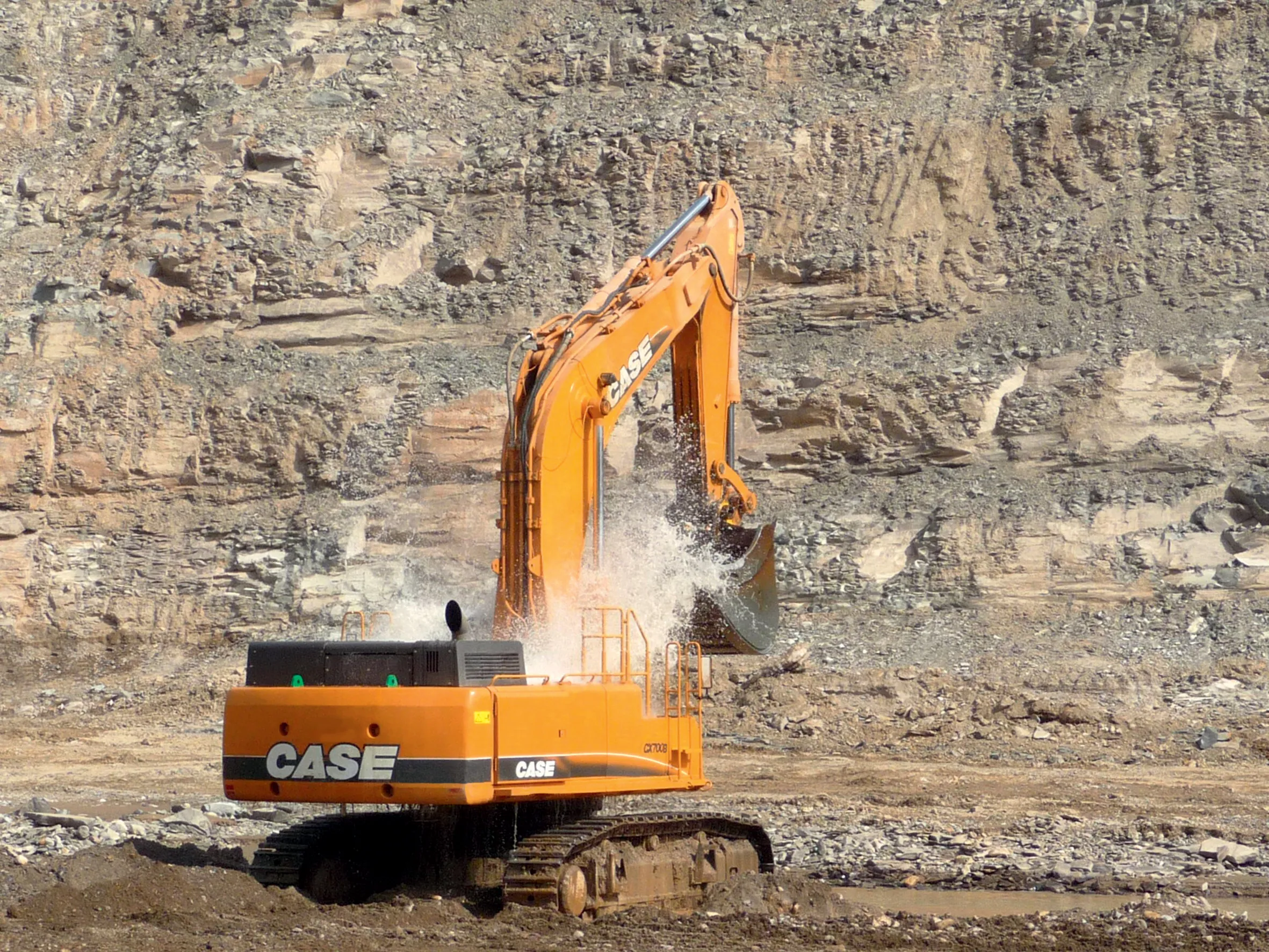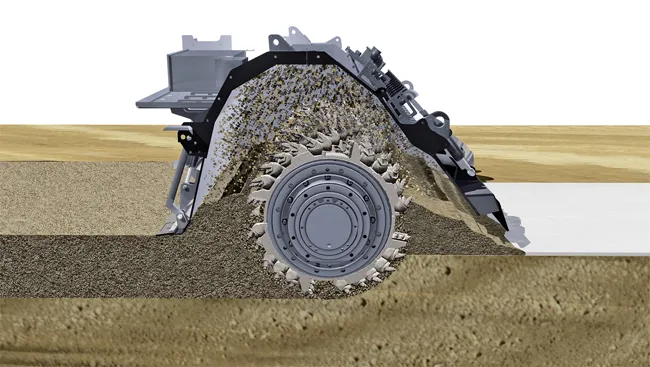Dynapac has launched the only 2.55m-wide material transfer vehicle (MTV) in the market: the Dynapac Mobile Feeder MF2500CS. The new machine has been designed to be easy and cost effective to transport, with no permissions or special transport vehicles required to get it about.
January 6, 2017
Read time: 2 mins
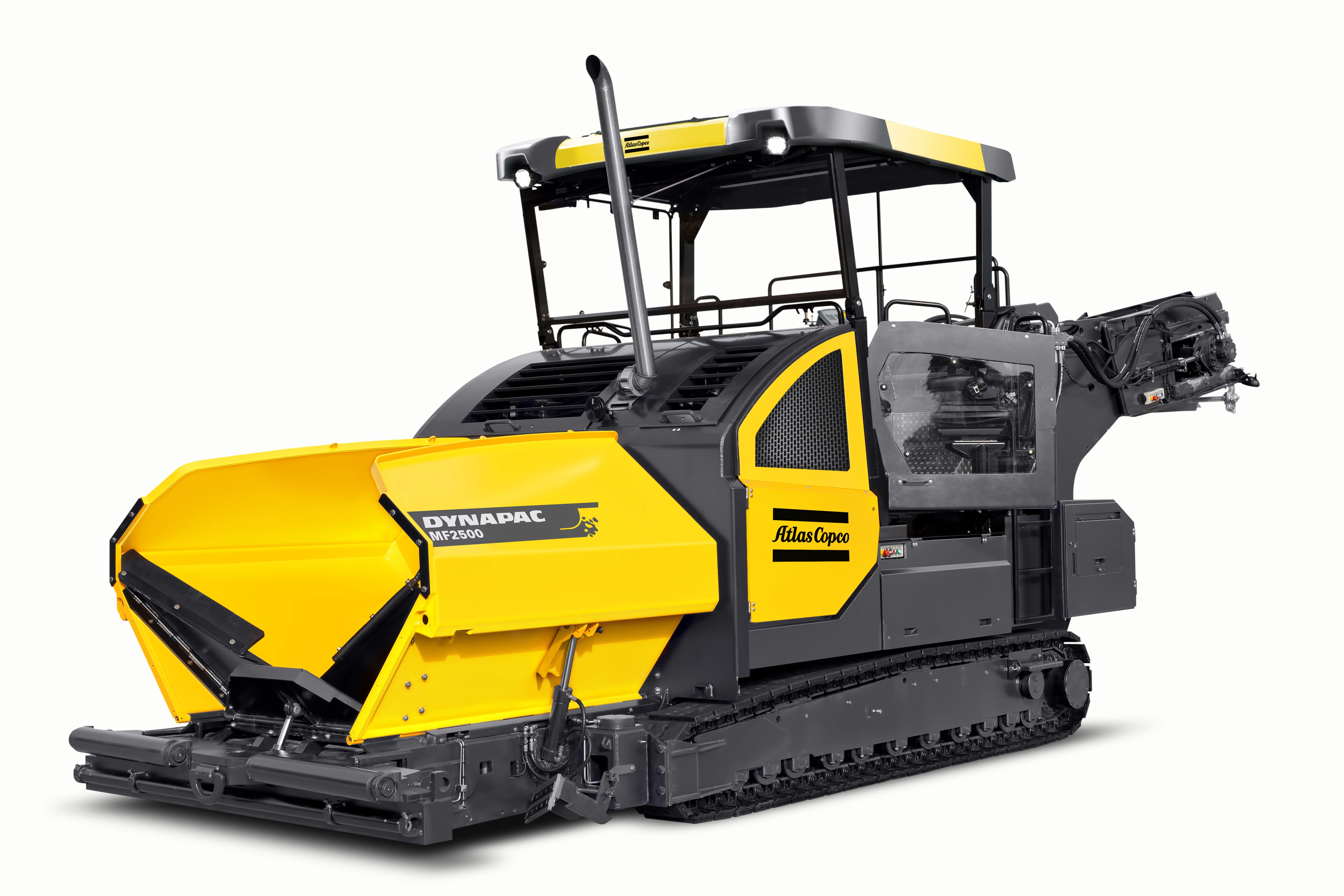
Although compact, the MF2500CS can empty a 27tonne truck in 35 seconds, giving a throughput of 4,000tonnes/hour. This level of productivity can bring big benefits for paving contractors, says Dynapac, because it means that paving machines aren’t sitting idle, waiting for the next lorry load of asphalt to arrive.
“Pavers can pave at twice the rate they do today on most jobs,” says Abhjit Som, product manager for large pavers at Dynapac. “ The problem is the material delivery.” The MF2500CS is intended to help make its users more efficient.
Continuous paving also helps to improve pavement quality. When asphalt goes straight from the delivery truck to the paver’s hopper, the last asphalt laid tends to be colder. This can result in an uneven ride, with surface joints that are likely to fail. “We did a study and it showed that paving stops cause problems. These cold areas are usually the first to fail,” said Som.
Using MTVs allows a more homogeneous pavement. Aggregate in asphalt tends to segregate over its journey to site, whereas MTVs keep the mix heated and agitated, leading to a better quality pavement.
The MF2500CS comes with a standard short conveyor, Plus an option to add a swingable conveyor behind the short belt. This means that the machine can also supply two pavers at once if required. It is powered by a Stage IIIB/Tier4 Interim
In order to keep ownership and servicing costs as low as possible for its existing customers, Dynapac has used many standard paver components in the MF2500CS.www.atlascopco.com


